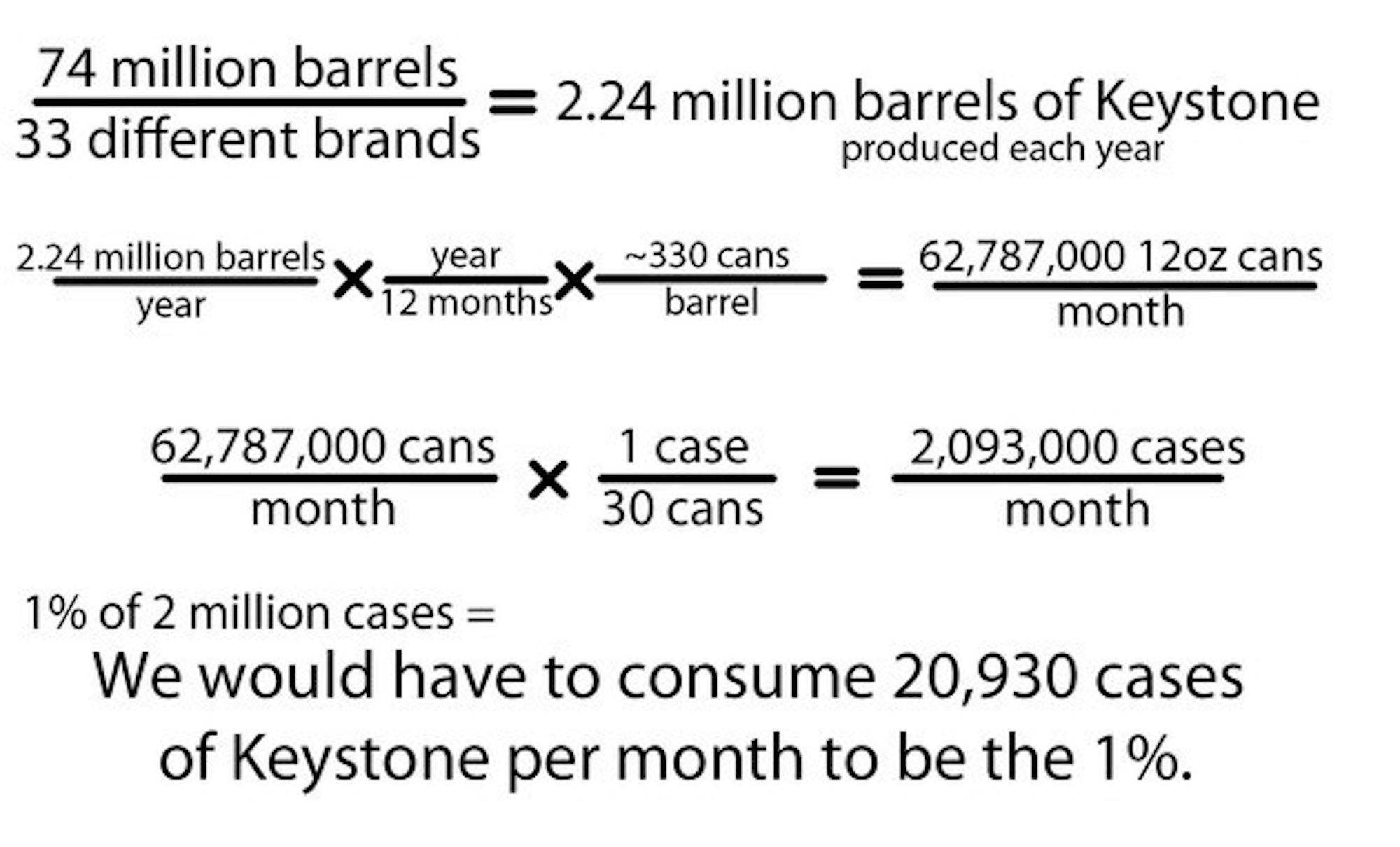First, I estimated how much Keystone Light MillerCoors (Keystone's parent company) yields per year. The company produces 74 million barrels of 33 different beer brands, one of which is our god among beers, Keystone Light. If you (probably incorrectly, but bear with me here) assume that those 74 million barrels are divided evenly among the brands, you can extrapolate the questionable figure of 2.24 million barrels of Keystone brewed each year. This number converted to gallons, ounces, cans and then finally cases amounts to a whole lot of crappy beer. Numerically, this equals about 2,093,000 cases (one case containing 30 Stones) of Keystone Light per month. That would mean that Dartmouth students would have to work together to kill 20,930 cases of Keystone Light per month to preserve our 1 percent status. Talk about the loyal ones who love her.
The second challenge was figuring out how to measure the volume of beer consumed on this campus. Considering that Greek organizations are the main hub of all things Keystone Light, I figured that measuring consumption in this particular community would be my best bet in finding overall Dartmouth Keystone consumption. Despite the fact that members of Greek organizations informally give out that information with pride, the statistics were harder to gather than expected. I polled three fraternities and one sorority, finding that anywhere between 40 and 400 cases are purchased per month. Seeing as it would be impossible to deduce the exact amount of beer consumed, I decided on two unique mathematical possibilities to attempt to bust this myth.
-
Figure out how much beer each frat brother, sorority sister or coed at a house consumes per month. Based on averages of different fraternities' alcohol purchases (and inevitable consumption), each brother is responsible for 3.1 cases per month, or 33 beers. Performing similar logic for the sororities (averaging between local and national sororities to account for the stark differences in Keystone consumption for each), I determined that each sister represents a quarter of a case per month. If 65 percent, or 2,761 Dartmouth undergraduates, are affiliated, that means there's an average of 89 members per house, whether fraternity, sorority or coed. Do all that math, accounting for the different houses' alcohol intake, and we find that the Dartmouth Greek system purchases 5,382 cases of Keystone Light per month, or only .257 percent of the world's total Keystone Light production. Rough.
-
Take the upper limit of cases purchased by a Greek house per month 400 cases, totaling 1,200 beers. While some may call that "sink night," I would say it's the absolute peak of realistic possibility. Of the houses I talked to, only one could even hope to reach this number. Now imagine that every single fraternity, sorority and coed purchased this much Keystone Light every single month. Even then, after applying that maximum limit to every Greek organization on campus, Dartmouth students would only account for .592 percent of global Keystone Light consumed.
In fact, in order to reach that staggering 1 percent, every Greek organization would have to buy 675 cases per month. That's 22 cases per day for every Greek organization on campus. That totals 660 beers per Greek organization per day, which amounts to 20,460 12-oz. beers per day across campus. In order to be in the 1 percent, every student would have to drink almost five beers every single day. So I say we start kickin' some back we have a reputation to uphold.




